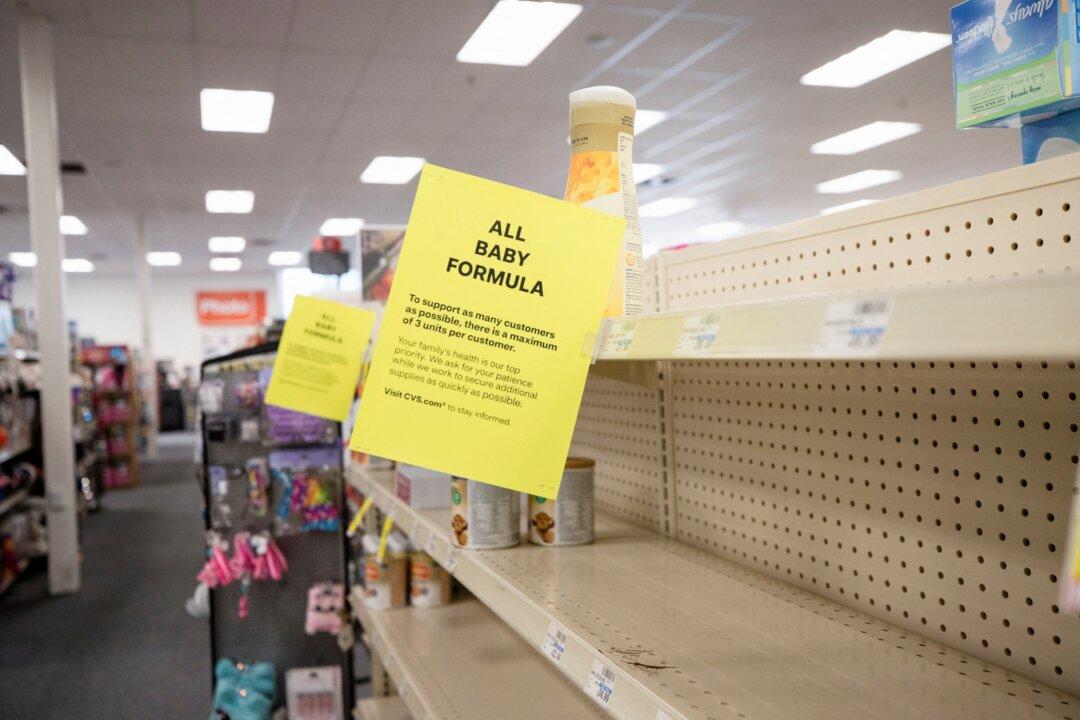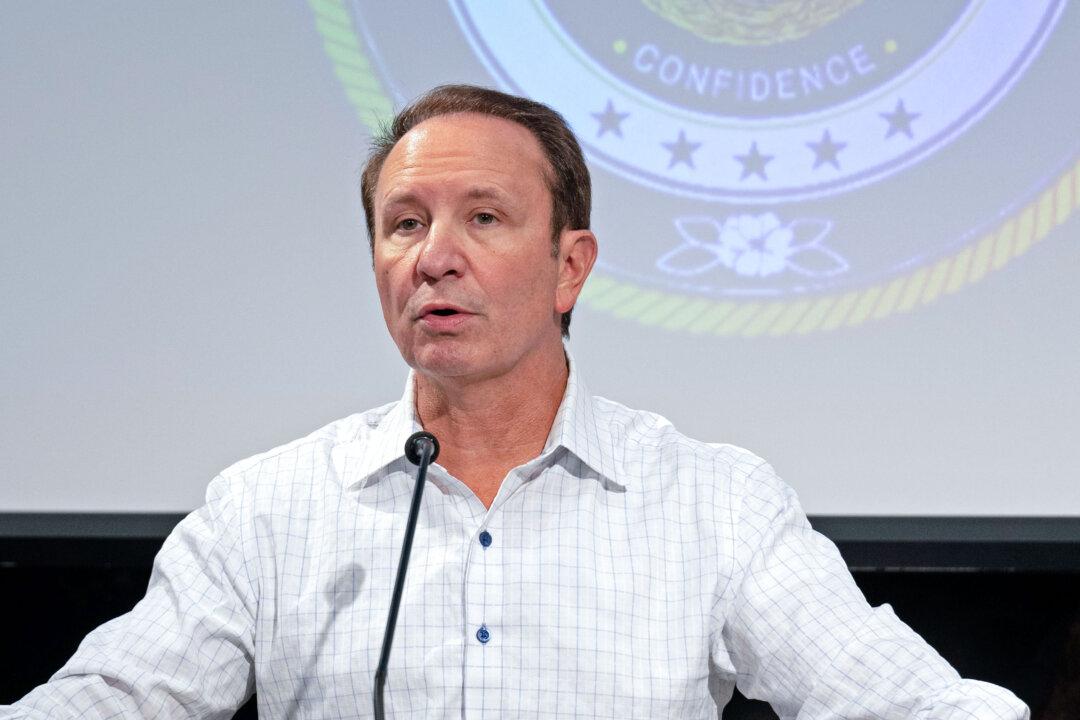President Joe Biden invoked the Defense Production Act (DPA) on Wednesday to accelerate the production of U.S.-made infant formula amid a nationwide shortage of this critical food and reports of infant deaths resulting from the shortage.
In a statement published late Wednesday, the White House announced that the DPA would require infant formula manufacturers’ ingredient suppliers to prioritize the needs of infant formula manufacturers before any other customers.





